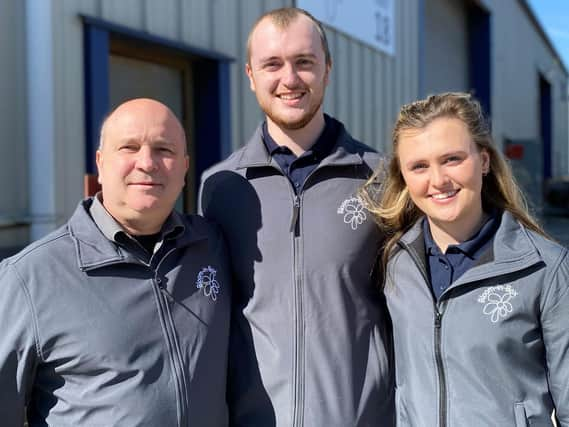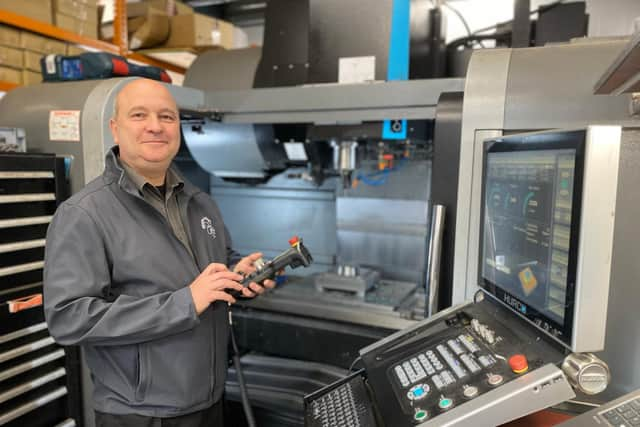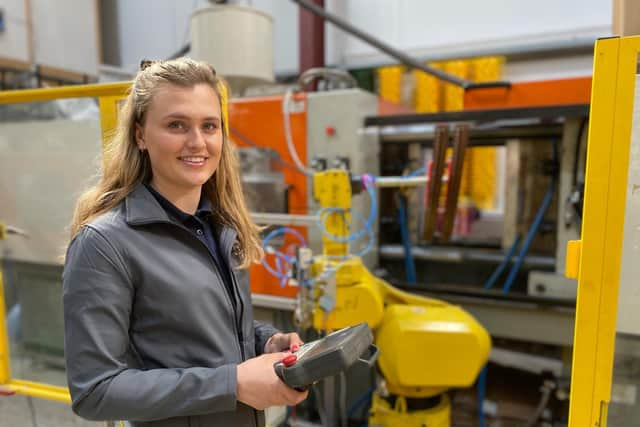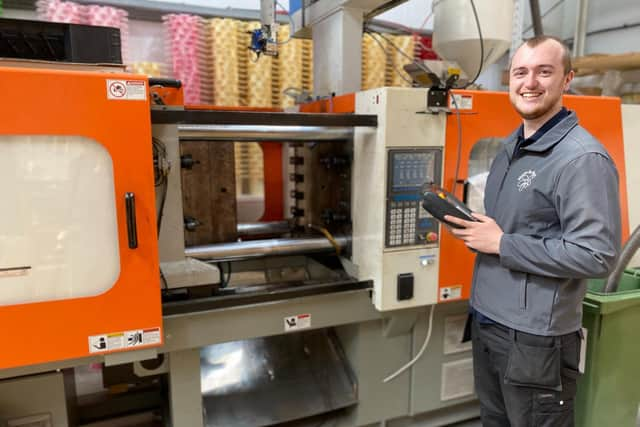Ready to Bloom: The Lancashire plastics company using cutting-edge tech to fuel their ambitions


“People think it’s a terrible thing, but it can be the solution to so many problems and is 100% recyclable in most cases,” he says. “For example, for about three years we’ve been working on a bio-polymer which can go in the compost bin and we’re about 95% of the way there.
“Eco-friendliness is the way forward and is everything that drives us.”
Advertisement
Hide AdAdvertisement
Hide AdBloom is a family-run company which designs, manufactures, and sells both its own inventions and general products including floristry packaging, security spike systems, pegs, and assorted scoops and measures.


Run by David and his children Tom, who studied robotics at Liverpool University, and Hannah, who did web design and computer sciences at Edge Hill, the company has some serious heritage, too.
“My father started in plastics with his own business back in 1965 - he worked in the industry all his life, so he built up a massive wealth of knowledge - and I myself started here around 20 years ago,” says David, 56. “It’s a proper family business and I love that heritage.
“Everyone does everything: my daughter sets machines and looks after web design, my son works with robots and does the dishes - we all do the lot,” he adds. “It’s very fulfilling.
Advertisement
Hide AdAdvertisement
Hide Ad“We didn’t set out with a set vision to have a family operation, it’s just grown organically.”


Having developed significantly over the past 18 months, Bloom has embraced state-of-the-art tech to drive further development and drive eco-friendly innovation with help from Made Smarter, a national industrial digitalisation movement which helps companies improve productivity and growth to ‘put the UK at the forefront of the fourth Industrial Revolution’.
“Internally, we’re very energy-conscious,” explains David, with Bloom one of 3,000 small companies in the North West supported by Made Smarter. “We use recycled materials in-house, we’ve been using energy-efficient machines for 20 years, and I started off by funding the whole place with carbon-trust loans to offset our carbon even back then.
“Hannah and Tom also very much drive the eco-friendly side of things, too,” he adds, with new, cutting-edge robotics and process-control tech helping increase productivity by 25%. “We’ve always used top-end technology and trained into it, which means we can be quite inventive.
“Made Smarter has accelerated our ambitions by years.”


Advertisement
Hide AdAdvertisement
Hide AdBloom, which has a four-person workforce, has also invested in energy-efficient machines and 3D printing to create everything in-house whilst also developing food grade-approved and 100%-recyclable polypropylene.
At the end of the day, the name of the game for Bloom is to design and manufacture products with more than just one life and do something about the negative reputation plastics have.
“The key to embracing technology is to make everyone feels needed and not replaced,” says David, who is from Liverpool. “Using technology is not about removing jobs but becoming more profitable and redeploying staff in other areas that benefit the business better and remove the mundanity of tasks, giving more fulfilling roles.
“It’s a smarter approach to manufacturing.”
Thanks to their embrace of the most up-to-date technology, David says that the company found themselves well-placed to cope with the various Covid-19-imposed lockdowns and the general unpredictability of the past 12 months.
Advertisement
Hide AdAdvertisement
Hide Ad“I don’t think we’ve ever been as busy as we were in this last lockdown,” he says. “We’ve been very fortunate during Covid because of the level of automation we have; we’ve never had to shut the door at any point.”